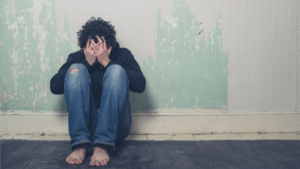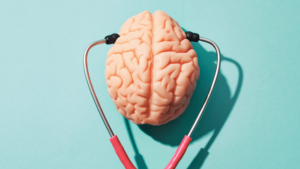How would you feel about being ashamed of expressing your condition for the fear of being judged and branded as someone with a mental illness? How would you feel about not being able to seek treatment because people might look down on you or treat you differently? Whatever it is, that is the exact feeling people with mental illness experience because of the stigma on mental health.
What is stigma anyway? It is when someone sees you negatively because you possess a different attribute: such as color, race, religion, or a mental illness. People with mental illnesses are stigmatized, often labeled with cruel words such as crazy, weird, or even psychotic. Not surprisingly, negative associations toward people with a mental illness are common.
For people with mental health issues, the stigma and prejudice they experience can make them feel less, unworthy, distant, and more hesitant to declare their mental illness and seek help. No matter how subtle, the stigma and perception of people with mental illness can result in struggles. The fear and embarrassment surpass their need to get help and treatment.

The Numbers Are Greater Than What You Think
According to the World Health Organization, 1 in 4 people are affected by a mental illness during their lifetime. However, more than two-thirds of those with a diagnosed mental illness do not seek care or help for their condition. People often delay or totally avoid seeking help due to worries of being seen and treated differently – all because of the stigma people have put on mental illnesses.
A 2017 study on barriers to mental health recovery stated that stigma limited their life opportunities and was associated with poor recovery from mental illness. More than 90% of teenagers prefer researching online on mental health and mental illnesses rather than seeking professional help.
Many famous personalities such as Lady Gaga, Demi Lovato, Chrissy Teigen, and Adele have taken to social media and the news about their mental illness. Even with the disclosure of these influential icons, people still continue to discriminate against people with mental illness.
Types of Stigma
1. Public Stigma
According to an article in the World Psychiatry Journal, public stigma is the reaction that the general population has to people with mental illness. It involves negative perceptions other people have on someone with a mental illness. Public stigma is rampant and widely recognized in the Americas and many Western European nations. It is not only the public who stigmatize people with mental illness because even professionals too.
2. Self Stigma
In the same article published in the World Psychiatry Journal, it defined self-stigma as the prejudice which people with mental illness turn against themselves. This manifests as internalized shame, self-doubt, and a lot of self-pity. Because of the stigma put over their heads like a halo, people with mental illness believe they are less valued and less respected because of their mental illness. Often, self-esteem suffers, and people with mental illness breakdown and lose confidence in doing anything.
Harmful Effects of Stigma on Mental Illness
Stigma on mental illness can lead to progression or worsening of symptoms. Stigma does not only affect those with mental illness, but also their workmates, friends, and family who are constantly around them.
Even the lightest backhanded compliment can be hurtful to someone with a mental illness. Often, we may not be careful with voicing out our perceptions of mental illness and may utter some offensive statements.
Here are some detrimental effects of stigma on mental illness:
- Low level of self-esteem
- Reduced hope for recovery
- Lower possibility of seeking professional help and treatment
- Difficulty forming and maintaining social relationships
- Worsening psychiatric and physical symptoms
- Feeling ashamed, helpless, and isolated
- Being misunderstood by people around you
- Verbal harassment, bullying, and even physical violence
- Self-pity and self-doubt
- Discrimination in the workplace or school, such as fewer opportunities
- Most health insurance does not satisfactorily cover mental illness consults and medications
It is important for us to be sensitive to those around us, we will never know who is struggling with a mental illness. The last thing they need is more criticism and embarrassment from being diagnosed with a mental illness in mind.
How To Overcome Stigma on Mental Illness
Stigma, prejudice and discrimination against people with mental illness remains a big problem across all socioeconomic levels. Due to the fear of being stigmatized, people with mental illness are often reluctant to admit they have a mental illness, much more admit that they need treatment. One fool-proof way to overcome the stigma and overcome your mental health is to seek out professional help.

Here at MindShift Psychological Services, we have a team of respected professionals who can help you overcome stigma, reduce psychiatric symptoms, and improve balance in your life. Schedule an appointment with us today and start your road to a better recovery.



